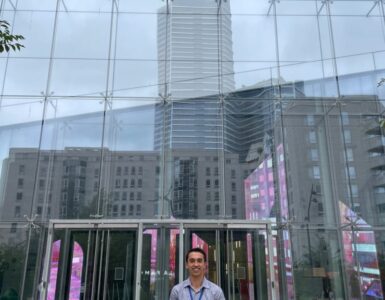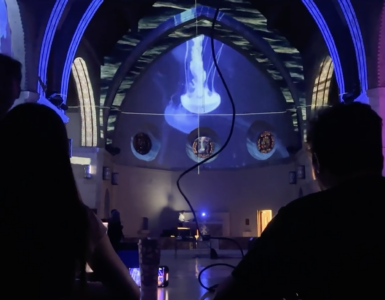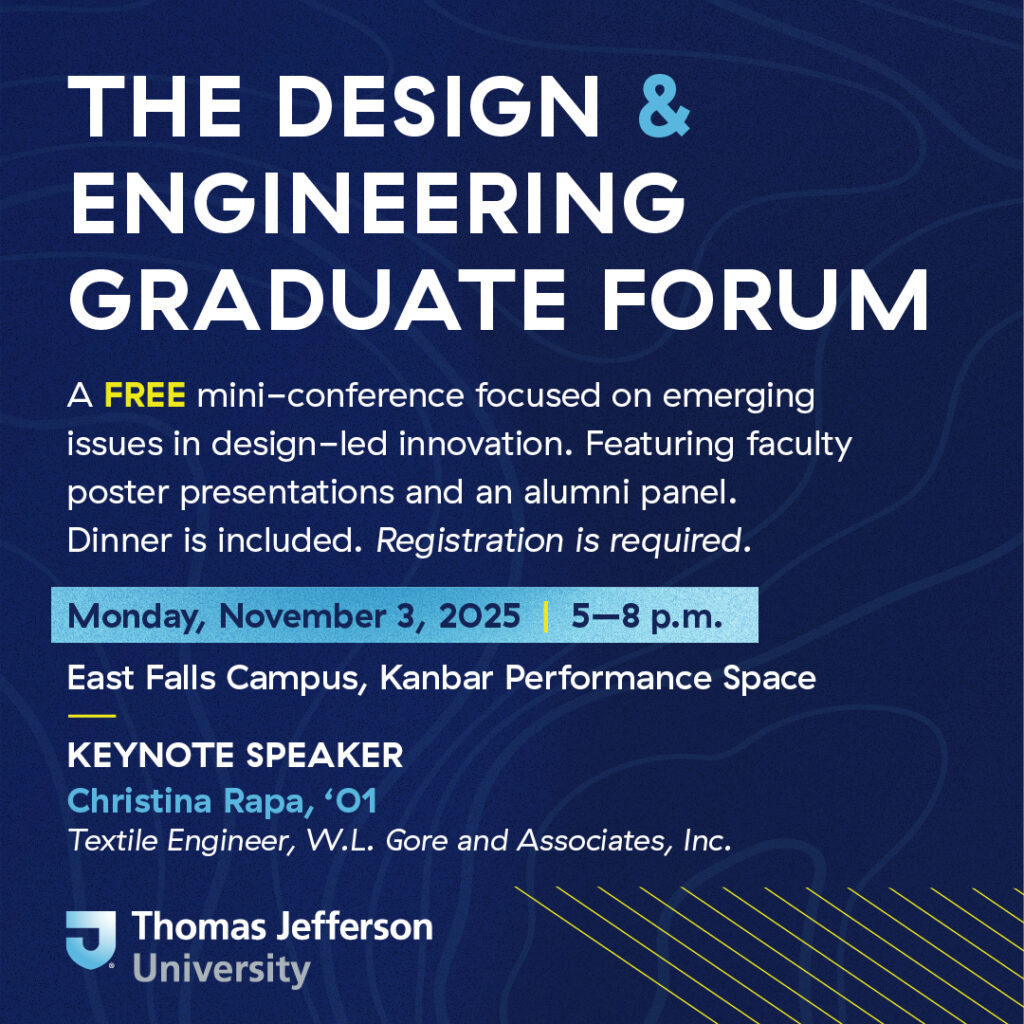As one of the nation’s leading cities for education and innovation, Philadelphia has long been a place where new ideas and industries flourish. Our city’s focus on practical know-how combined with access to the leading thinkers and tech of today creates an environment where students are positioned to shape the future of the industries that matter most.
Jefferson’s emphasis on cross-disciplinary learning and practical experience prepares students to meet today’s challenges, while equipping them with the skills to revolutionize industries across the economy. Founded in 1824 as one of the nation’s first medical schools, Jefferson today has 10 colleges and more than 200 academic programs across a variety of disciplines and, at the dawn of its third century, it’s planning to see what the future of industries, particularly in Philadelphia, look like.
Through an emphasis on experiential learning, transdisciplinary collaboration, and emerging technologies, Jefferson students are gaining the tools to lead across industries as diverse as fashion, architecture, medicine, healthcare, business and design. And now, with the addition of new programs in artificial intelligence and data analytics, the university is helping students take on some of the most urgent challenges and exciting opportunities in the evolving job market.
“We’re constantly looking at where the world is headed,” says Dr. Susan Aldridge, president of Thomas Jefferson University. “That includes understanding how artificial intelligence and data will reshape how we teach, learn and ultimately serve society.”
Here are some of the industries that they’re seeing breakthroughs in–and what the future of Philly looks like based on the students and teachers who are already paving the way.
Fashion: Designing for a Better World
Fashion design is about far more than aesthetics at Jefferson. Students are reimagining the role of clothing in people’s lives—whether that means rethinking gendered apparel, designing adaptive garments for people with disabilities, or experimenting with sustainable materials that reduce environmental impact.
Students learn through hands-on studio work and showcase their collections in high-profile public events, such as the annual Jefferson Fashion Show. Faculty mentors, many of whom have years of industry experience, help students explore not only artistic direction but also supply chain trends, digital prototyping, and brand storytelling. The result is a program that produces designers ready to contribute to a fast-moving, socially conscious industry.
Architecture: Building Resilient Communities
At Jefferson’s College of Architecture and the Built Environment, students take on projects that reflect real-world complexity. From urban housing to post-disaster rebuilding efforts, they are encouraged to think deeply about how design shapes human experience.
Technology plays an increasingly important role in their work. Students use advanced modeling tools to simulate energy use, optimize building materials, and assess climate resilience. These technical skills complement a strong foundation in sustainable design and social equity, preparing graduates to help communities meet the challenges of a changing world.
Health: Data-Driven, Human-Centered Care
Jefferson’s legacy in healthcare education is long-standing, but the field is changing rapidly—and the university is evolving with it. Today, students gain not only clinical expertise but also experience working with data, systems, and emerging technologies that are redefining how care is delivered.
To stay ahead of the curve, Jefferson recently launched several new graduate programs designed to train the next generation of data-informed healthcare leaders. These include an M.S. in Computational Biology and Medicine, which combines biology, medicine, and computer science to equip students with the ability to analyze large-scale biological datasets and apply machine learning to research and patient care. The A.I. in Health Analytics Leadership Advanced Practice Certificate prepares working professionals to lead health data initiatives with a strong foundation in ethics, regulatory issues, and applied A.I. models.
“These aren’t just tech programs,” says Dr. Richard Hass, who leads the health analytics certificate. “They’re about helping people use data to improve outcomes, reduce disparities and make health systems work better.”
Across all of Jefferson’s health-related programs—from nursing to public health—students engage in real-world clinical experiences. Many begin interacting with patients in their first year, gaining the human perspective that remains vital even as the field becomes more technologically advanced.
Business: From Insight to Impact
Business today is fueled by data, but it’s the ability to interpret and apply that data that drives success. Jefferson’s new graduate programs reflect that shift. The new M.S. in Business Analytics is geared toward students who want to use data storytelling and visualization to support organizational decision-making. The M.S. in Data Analytics offers a more technical path, teaching students to build models, understand algorithms and explore advanced machine learning.
“Data is only useful if it can influence action,” says Justin O’Pella, assistant dean at Jefferson’s Kanbar College. “Our programs help students connect the dots between data and leadership.”
Beyond the classroom, students work on applied projects with real clients, from startups to established companies. They learn to collaborate across disciplines, think strategically, and lead with agility, all critical attributes in today’s business landscape.
Design: Innovation with Purpose
Design students at Jefferson approach their work as problem-solvers. Whether creating consumer products, wearable health devices or service experiences, they start with human needs and design solutions that are functional, sustainable and scalable.
The curriculum is grounded in collaboration. Students in industrial design, user experience and service design often work with peers from engineering, business and health to bring ideas to life. The result is a culture of innovation that mirrors the cross-functional teams found in today’s most forward-thinking companies.
Integrating Technology, Ethics, and Transdisciplinary Learning
One of Jefferson’s defining features is its emphasis on transdisciplinary education. In the classroom and through co-curricular projects, students from different programs collaborate on complex challenges that reflect real-world conditions. This model fosters both technical proficiency and what many employers call “power skills”: communication, empathy, adaptability and systems thinking.
The rise of A.I. and data has added urgency to that mission. As Aldridge notes, “This field is experiencing rapid growth, meaning a higher demand for specialized skills. Our programs emphasize technical expertise and ethical considerations, quality control, and leadership skills concerning data management.”
Faculty across colleges are integrating data literacy and digital tools into their courses, ensuring that students in every discipline gains the fluency needed to work with and understand technology’s implications.
As industries continue to evolve, Jefferson is positioning its graduates to not only adapt but to lead. By aligning education with real-world practice, technological fluency and human-centered design, the university ensures that students graduate ready to contribute meaningfully in their chosen fields.
“We want students to leave here with the mindset and the skill set to keep learning,” Aldridge says. “That’s what will allow them to thrive in the workforce of the future.”
Across fashion runways, hospital systems, design studios, data labs and urban neighborhoods, Jefferson students are already shaping the future—one innovation, insight and impact at a time.
This is a paid partnership between Thomas Jefferson University and Philadelphia Magazine








Add comment